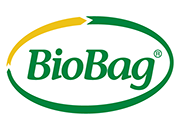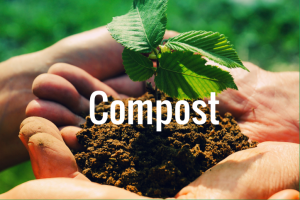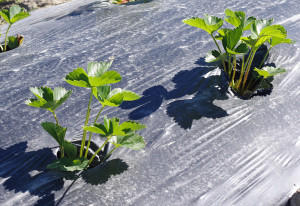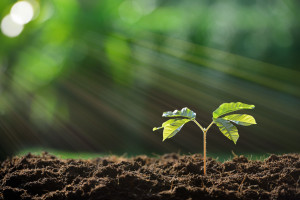Life depends on healthy soil…
Soil is alive: it supports the plants & animals, whose interactions beneath our feet help to keep us alive too. Soil provides us with food, directly and indirectly, as well as with clean water & a habitat for biodiversity.
At the same time, soil can help to slow climate change and mitigate against extreme climate events like drought and flooding. Soil is a key part of the landscapes that we all cherish and should want to protect.
WHY WE CARE ABOUT SOIL HEALTH?
It takes 1000 years to create a 2–3-centimetre layer of soil. But this natural resource is under threat and if the current rate of degradation continues, the entire top layer of soil could be gone in 60 years, according to the United Nations Food and Agriculture Organization (FAO) 1,2 . Not good news if we agree that life depends on healthy soil.
About a third of the world’s soil has already been degraded due to erosion, compaction, acidification and chemical pollution.
The food scraps that we put into organic waste collections are turned into a valuable natural resource: compost. As compost, they feed important nutrients back into soil so that more healthy food can be produced.
Collecting and composting organic waste, like domestic food scraps & garden cuttings, rather than putting it general waste going to landfill or incineration, is so important. Compost improves & strengthens the resilience of soil to environmental changes and shocks and contributes to a circular, more sustainable economy.
WHAT IS HEALTHY SOIL?
Human health depends the health of plants which in turn depends on the health of soil.
Healthy soil contains a large amount of organic matter and soil micro-organisms that need oxygen and water. Adding compost to depleted soil significantly improves soil’s ability to hold onto moisture and it has many other benefits. For example, it ensures that rainwater is captured and retained in soil preventing it ‘running off’ and leaching chemicals into nearby rivers and waterways.
HEALTHY SOIL INCREASES THE VALUE OF AGRICULTURE
We, as consumers, are more aware now of the importance of cultivation and food production methods for the quality of our food.
Agricultural systems need healthy soil to be able to grow crops. When agriculture works to improve levels of beneficial micro-organisms living in soil, as well as its oxygen and water content, the result is higher yields and better-quality crops.
Loss of soil biodiversity is widespread in many agricultural areas, where there is an increasing consumption of agrochemicals, low plant biodiversity and rigid soil management practices.
Thankfully, awareness of the important role sustainable agriculture has in preserving carbon in the soil and regenerating depleted soil is becoming more widespread.
WHAT ROLE DOES BIOBAG PLAY?
BioBag bags contribute to soil health via the circular economy. When our certified compostable bags are used to collect food waste and sent to composting facilities, they degrade completely (together with the waste they contain) into water, CO2 and humus. BioBag bags never leave microplastics in the bio-residue and contribute to the creation of nutrient-rich fertilizer. Our products are made from raw materials sourced from plants. These plant ingredients come from non food sources and are grown by farmers who we support in using sustainable agricultural and regeneration practices.
Soil. Its not Dirt.
BioBag products are certified compostable and biodegradable according to the European Standard EN 13432. BioBag holds compostable and biodegradable certificate issued by TÜV AUSTRIA (OK Compost) for home and industrial composting. BioBag food waste bags are certified by Cre, The Composting Authority of Ireland for use in Irish composting facilities.
1 https://www.fao.org/global-soil-partnership/resources/highlights/detail/en/c/1251238/
2 https://www.fao.org/soils-2015/events/detail/en/c/338738/




No comments yet. If you want you can add one!
Our apologies, you must be logged in to post a comment.